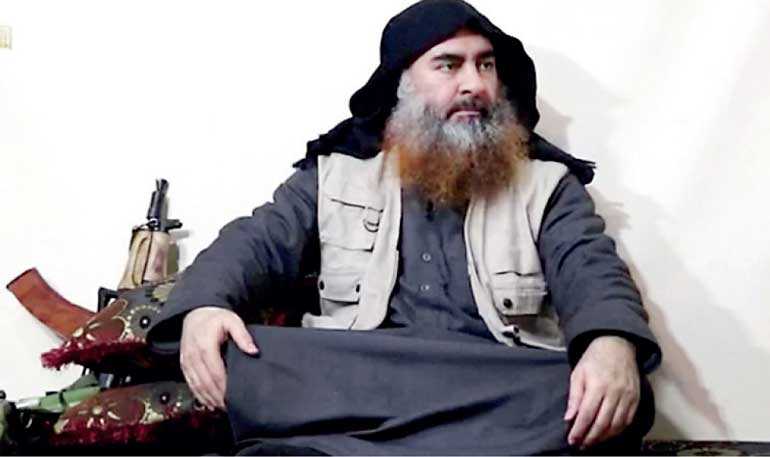Wednesday Feb 18, 2026
Wednesday Feb 18, 2026
Monday, 28 October 2019 01:14 - - {{hitsCtrl.values.hits}}

A bearded man with Islamic State leader Abu Bakr al-Baghdadi's appearance speaks in this screen grab taken from video released on 29 April – Islamic State Group/Al Furqan Media Network/Reuters TV via Reuters
REUTERS: US President Donald Trump announced on Sunday that fugitive Islamic State leader Abu Bakr al-Baghdadi died in a raid by US Special Forces in northwest Syria, in a major blow to the jihadist group.
Baghdadi killed himself during the raid by igniting a suicide vest, Trump said in a televised address from the White House. Test results from the aftermath of the raid had positively identified Baghdadi, he said.
“He was a sick and depraved man, and now he’s gone,” Trump said.
Baghdadi had long been sought by the United States, as head of a jihadist group that at one point controlled large areas of Syria and Iraq, declaring a caliphate. The group has carried out atrocities against religious minorities and attacks on five continents in the name of a version of an ultra-fanatic Islam that horrified mainstream Muslims.
In recent years, the group had lost most of its territory. But while the destruction of the quasi-state that Baghdadi built has denied the group its recruiting tool and logistical base from which it could train fighters and plan coordinated attacks overseas, most security experts believe Islamic State remains a threat through clandestine operations or attacks.
Trump had faced withering criticism from fellow Republicans and Democrats for announcing a withdrawal of US troops from north-eastern Syria earlier this month, which permitted Turkey to attack America’s Kurdish allies as it sought to set up a “safe zone”.
Many critics of the pull-out have expressed concern both at the abandoning of the Kurdish forces who had been instrumental in defeating Islamic State in Syria, and that the move might allow the group to regain strength and pose a threat to US interests.